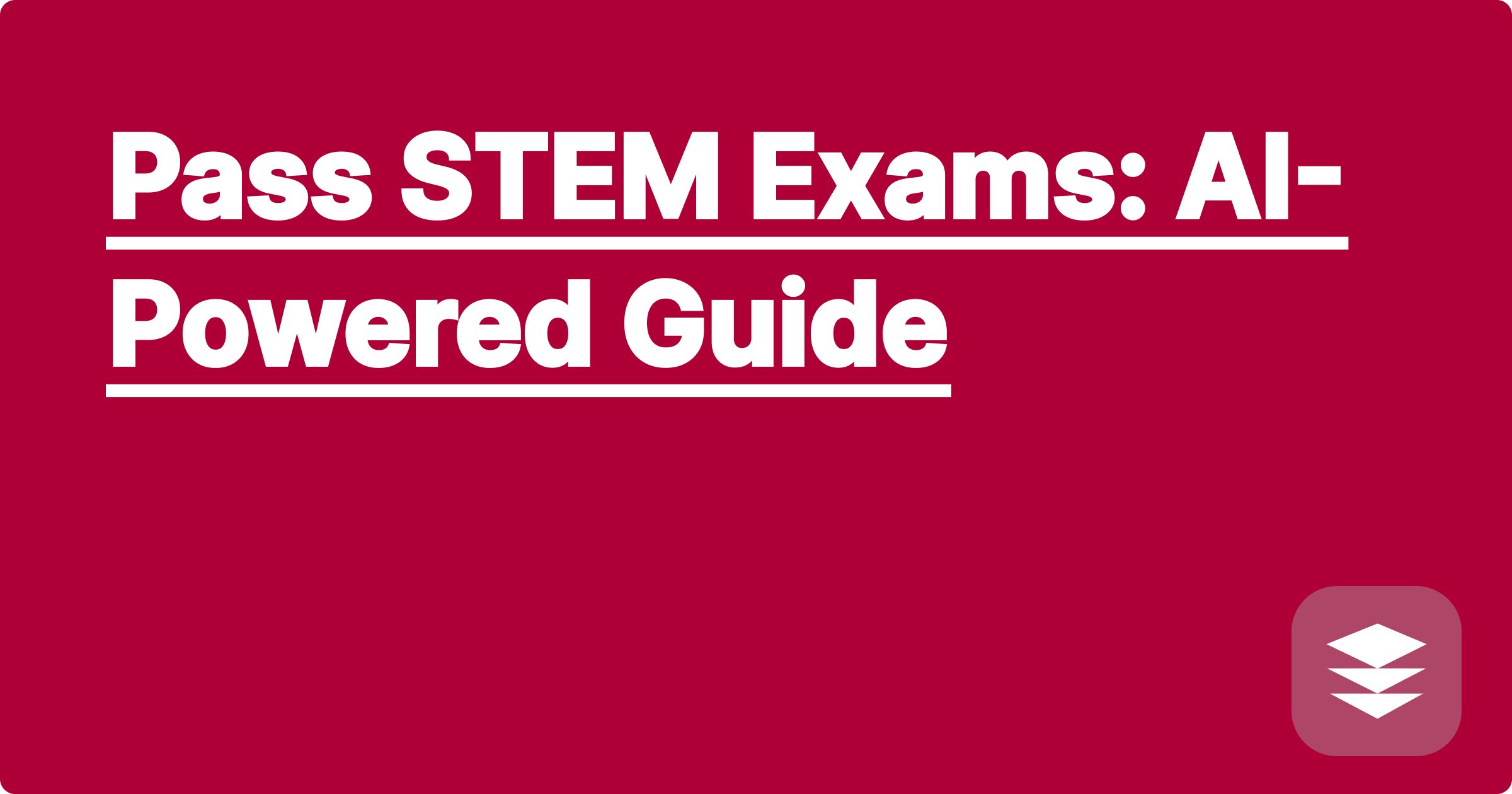
STEM fields present a unique set of challenges, demanding rigorous understanding of complex concepts and the ability to apply them to solve intricate problems. The sheer volume of information, coupled with the need for deep analytical skills, can often feel overwhelming for students and researchers. Fortunately, the rise of artificial intelligence offers powerful new tools to navigate these challenges. AI can provide personalized learning experiences, streamline research processes, and ultimately, empower STEM learners to succeed.
This matters significantly for STEM students and researchers because the ability to effectively utilize AI tools is becoming increasingly crucial for academic and professional success. These tools are not just about making things easier; they represent a fundamental shift in how we approach learning and research. Mastering these tools can unlock new levels of understanding and productivity, allowing individuals to tackle more complex problems and contribute meaningfully to their respective fields. This guide will explore how AI can be harnessed to specifically address the challenge of preparing for and excelling in STEM exams.
STEM exams often assess a broad range of knowledge and skills, requiring students to not only memorize facts and formulas but also apply them creatively to solve novel problems. This requires a deep understanding of underlying principles and the ability to connect different concepts. Traditional study methods, like rote memorization and passive reading, often fall short in preparing students for this level of complexity. Furthermore, the pressure to perform well in these exams can lead to anxiety and hinder effective learning. The challenge lies in finding efficient and effective study strategies that promote deep understanding and problem-solving skills while managing exam-related stress. This requires a shift from passive learning to active engagement with the material, and AI can play a crucial role in facilitating this transition.
AI tools like ChatGPT, Claude, and Wolfram Alpha offer powerful capabilities for STEM exam preparation. These tools can be used to generate practice questions, explain complex concepts, provide step-by-step solutions to problems, and even offer personalized study plans. ChatGPT and Claude, for example, can be used to engage in interactive learning sessions, where students can ask questions, receive explanations, and test their understanding in a conversational format. Wolfram Alpha excels at providing computational power and access to a vast knowledge base of scientific information, making it ideal for solving complex problems and verifying calculations. By integrating these AI tools into their study routine, students can transform their learning experience from passive absorption to active exploration and problem-solving.
Begin by identifying the key concepts and topics covered in the exam. Use the syllabus or course materials as a guide. Once you have a clear understanding of the scope of the exam, you can start leveraging AI tools to deepen your understanding. For instance, you can use ChatGPT or Claude to ask questions about specific concepts that you find challenging. These tools can provide explanations in plain language, often accompanied by relevant examples. Next, use these tools to generate practice questions and work through them step by step. If you get stuck, ask the AI for hints or a complete solution. Analyze the solutions provided by the AI, paying close attention to the reasoning and logic behind each step. Finally, use Wolfram Alpha to verify your calculations and explore related concepts. This iterative process of questioning, practicing, and verifying will solidify your understanding and prepare you for the exam.
Consider the concept of integration in calculus. You can ask ChatGPT to "explain the fundamental theorem of calculus." The AI will provide a detailed explanation, breaking down the theorem into its core components and illustrating its application with examples. You can then ask ChatGPT to generate practice problems involving integration. For example, you could ask it to "generate a problem involving the integration of trigonometric functions." After attempting the problem, you can use Wolfram Alpha to verify your solution and explore different methods of integration. Another example is in linear algebra. You can use ChatGPT to explain the concept of eigenvalues and eigenvectors, and then ask it to generate practice problems involving matrix diagonalization. Wolfram Alpha can be used to perform the necessary matrix operations and verify your calculations.
To maximize the benefits of AI in STEM education, it's crucial to adopt effective strategies. Don't rely solely on AI for answers. Instead, use it as a tool to enhance your understanding and problem-solving skills. Actively engage with the material by asking questions, formulating hypotheses, and testing your knowledge. Use AI to fill in gaps in your understanding, not as a shortcut to learning. Furthermore, it's important to develop critical thinking skills. Don't blindly accept the information provided by AI. Always verify the results and consider alternative approaches. Finally, remember that AI is a tool, not a replacement for human effort. Consistent study and active engagement with the material are still crucial for success.
In conclusion, AI tools offer a powerful new approach to STEM exam preparation. By leveraging these tools effectively, students can transform their learning experience and achieve greater success. Start by exploring the different AI tools available and experimenting with how they can best support your learning style. Integrate these tools into your study routine and embrace the opportunity to learn more effectively and efficiently. The future of STEM education is here, and it's powered by AI.
Conquer STEM: AI Practice Tests
AI Math Solver: Instant Solutions
AI Lab Assistant: Automate Tasks
Smart STEM Learning: AI-Powered
AI Science Solver: Easy Answers
Pass STEM Exams: AI-Powered Guide